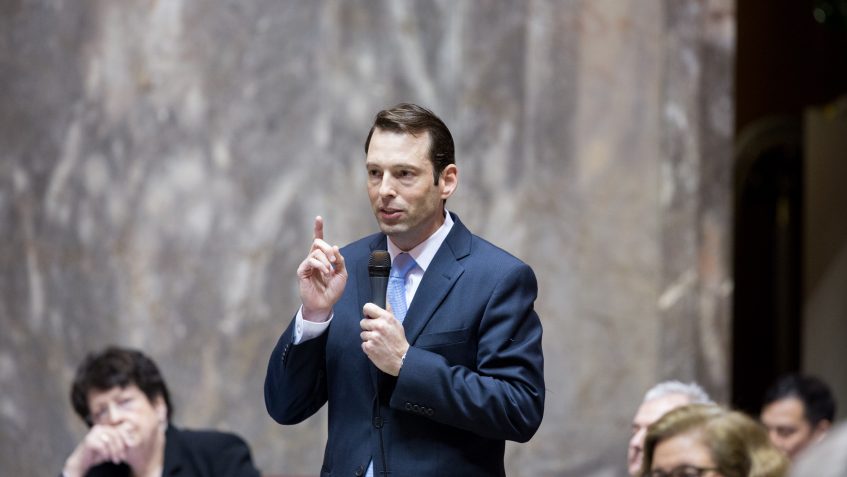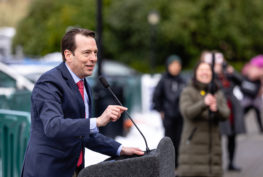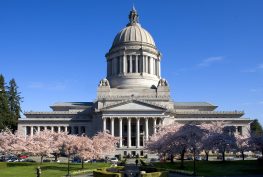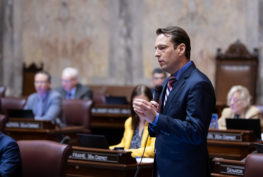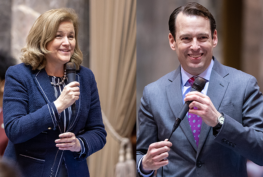OLYMPIA – With an important legislative deadline looming, an attempt to bring a bipartisan campaign finance bill to the Senate floor for a vote was blocked by Senate Republicans today. This marks the third year in a row that the Republican majority has blocked this bill from moving forward.
“I’m disappointed and somewhat shocked that this legislation, which has bipartisan support, has again been prevented from receiving a thoughtful debate,” said Sen. Andy Billig, D-Spokane, the legislation’s sponsor.
Billig noted that earlier in the legislative session he had worked with some of the groups that opposed the bill and prepared an amendment that would have addressed many of their concerns. Even after these good faith efforts were made, the Senate Republican majority still blocked his move to bring the bill up for a vote.
“It’s becoming clear to me that the Senate Republicans are comfortable with allowing dark money and secret political donations to continue to influence Washington state elections,” said Billig.
The bill, SB 5153, would require non-profit organizations participating in state and local political campaigns to disclose their contributions and expenditures. Currently, some non-profits are funneling undisclosed “dark money” into political campaigns.
SB 5153 would also require disclosure of the organizations’ top 10 largest sources of funds that are greater than $10,000 and any additional donors in excess of $100,000. It would not require an organization to file with the Public Disclosure Commission until the organization has spent or contributed at least $25,000.
“Washington has good disclosure laws but there is a glaring loophole that needs to be closed to strengthen our Democracy and this bill would do just that,” said Billig.
The limits of Washington’s campaign finance disclosure laws have been made clear in recent years. In 2013, political committees on both sides of the aisle used their non-profit status to avoid disclosure of millions of dollars in donations. In another example, the Grocery Manufacturers’ Association avoided disclosure for donors after spending over $11 million to fund a committee opposed to Initiative 522. It was only after the discovery of a specific fundraising e-mail that the attorney general was able to require disclosure. Also in 2013, Working Washington — a registered nonprofit — raised more than $250,000 in support of the SeaTac minimum wage initiative but did not release the names of donors.
In 2014, when an independent organization spending money in a legislative election was able to use its non-profit status to avoid disclosing its donors, it drew outcry from numerous legislators. SB 5153 would have applied in all of these cases and required timely disclosure of donors.
“This isn’t a partisan bill, it doesn’t benefit any particular party,” said Billig. “Unfortunately, the disclosure loophole that this bill hopes to address is being exploited by both Democrats and Republicans. Ultimately, the people this bill benefits the most are the citizens of our state. They deserve to know where the money is coming from in political campaigns.”

